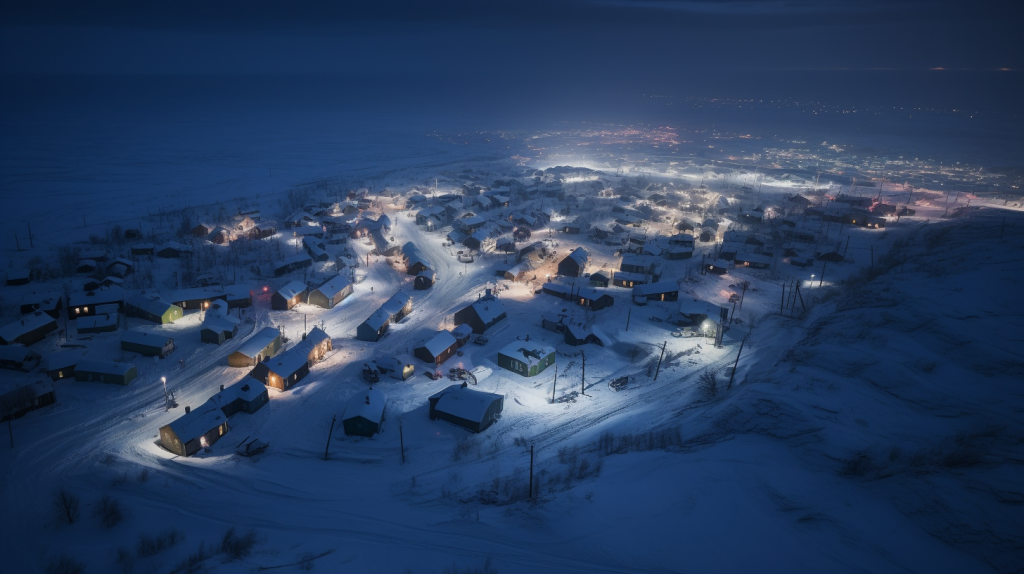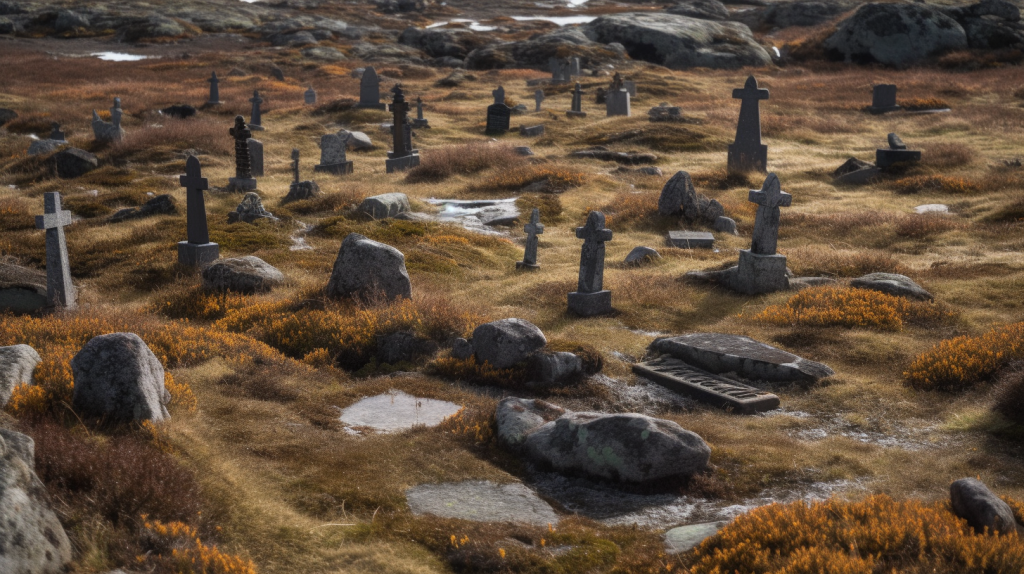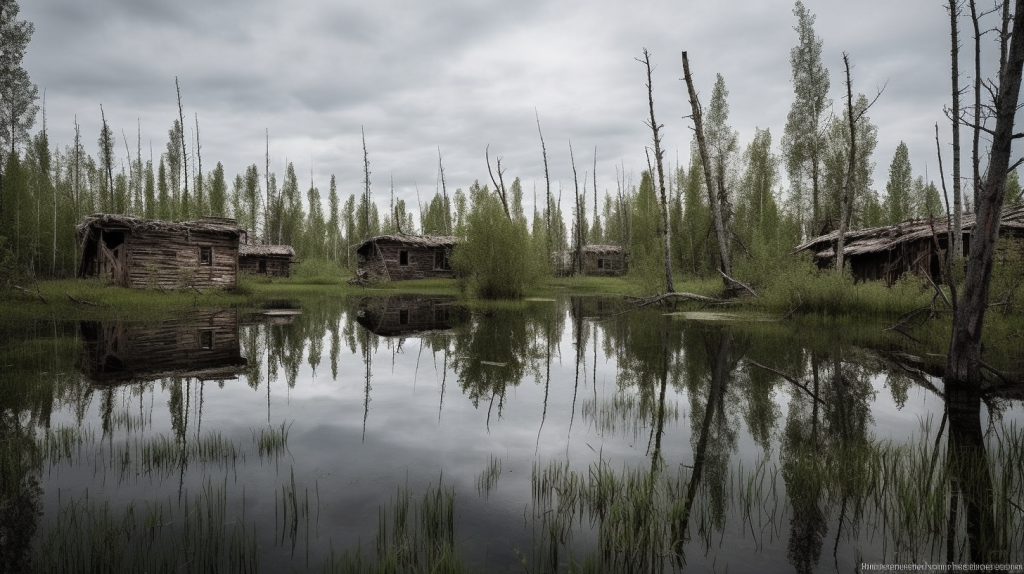In the vast, frozen expanse of Canada’s Arctic, a chilling mystery has haunted the region for decades. The story of the vanishing village of Angikuni Lake is one of sudden disappearance, eerie silence, and an enduring enigma that has captivated the minds of those who seek to unravel its secrets.

The tale of the vanished Inuit village dates back to November 1930, when fur trapper Joe Labelle stumbled upon the remote settlement near the shores of Angikuni Lake. Labelle had visited the village before and expected to find the familiar faces of the hardy Inuit people who had made their home in the unforgiving Arctic landscape. Instead, he found only an eerie silence.
As Labelle ventured further into the village, the unsettling scene began to unfold. The villagers had seemingly vanished into thin air, leaving behind their belongings, weapons, food, and even their sled dogs, which had starved to death. The air was thick with an ominous sense of foreboding, and Labelle could not shake the feeling that something terrible had befallen the people of Angikuni Lake.
Disturbed by his discovery, Labelle reported the incident to the Royal Canadian Mounted Police (RCMP), who launched an investigation into the missing villagers. According to some accounts, the search revealed that the graves in the village’s burial ground had been disturbed, with their occupants inexplicably missing. The mystery deepened, and whispers of supernatural forces, government cover-ups, and extraterrestrial involvement began to circulate.
Over the years, the story of Angikuni Lake has grown into a legend, with varying accounts of the number of missing villagers, ranging from a small group to an entire community of over 2,000 people. Theories about their fate have ranged from a sudden and catastrophic natural disaster to mass hysteria or an elaborate hoax. Some have even suggested that the villagers were abducted by extraterrestrials or spirited away by supernatural forces.

Despite the numerous investigations, both official and amateur, no definitive explanation for the disappearance of the Angikuni Lake villagers has ever been found. The RCMP eventually concluded that the story was an embellishment of an earlier, less dramatic event or a complete fabrication, but this has done little to quell the fascination with the vanishing village.
For some, the tale of Angikuni Lake is a testament to the power of oral tradition and the way stories can evolve and grow over time, blurring the lines between fact and fiction. For others, it remains a tantalizing mystery that begs to be solved, a ghostly village that exists at the edges of human understanding, forever shrouded in the icy mists of the Arctic wilderness.

The enigma of the vanishing village of Angikuni Lake continues to captivate those who hear its haunting tale, drawing researchers, thrill-seekers, and the merely curious to the barren shores of the lake in search of answers. Whether a genuine unexplained event or a chilling myth born from the isolation and desolation of the Arctic, the story of Angikuni Lake remains an enduring mystery that echoes through the ages, a ghostly whisper on the icy winds of the far north.




